Set in the remote islands off the coast of Chile in the late 19th century, Christopher Murray’s Sorcery tells the absorbing story of a young indigenous girl seeking answers after a devastating loss. 13-year-old Rosa works as a servant for German farmers who have settled on the forbidding shores of Chiloé.
When the entire flock of sheep on one farm is found mysteriously murdered and her father meets an untimely end while questioned about the incident, Rosa finds herself alone in the world. Determined to see justice served but met with indifference by local authorities favoring the European colonists, Rosa turns to members of a traditional medicine group shunned by the church for help avenging her father’s death.
As Rosa is initiated into the ancient rituals of the group called La Recta Provincia and unravels the true events surrounding her family’s demise, Sorcery explores powerful themes of colonial oppression, cultural resistance, and reclaiming one’s identity in the face of hardship. Murray creates a vivid sense of the lonely and ominous island landscape that heightens the drama.
However, some may find that despite a strong lead performance and message, an unclear conclusion and pacing issues hold the film back from achieving its full emotional impact. While offering fascinating glimpses into history, Sorcery leaves the viewer still lingering for resolution on Chiloé’s foreboding shores.
Chilean Landscapes and Symbolic Cinematography
The remote island setting of Sorcery plays a leading role in crafting the film’s unsettling atmosphere. Director Christopher Murray and cinematographer María Secco transport viewers to the windswept shores of Chiloe, just off the Chilean coast, with haunting landscape shots that linger in the memory.
Grey skies and lashing rain form a constant backdrop, the type of dreary weather that seems to seep into one’s bones. Between blankets of mist, the camera reveals rugged terrain and thick forests that appear all the more foreboding and isolating.
Secco balances bleakness with moments of beauty, such as milky shorebreaks crashing onto volcanic sands or sweeping views taking in the island’s rocky, tree-covered expanses. Her shots are framed and lit to emphasize solitude, with Rosa often a small, solitary figure amid this lonely scenery. The unforgiving natural environment becomes another character, reflecting the hardship of living off this land and reinforcing Rosa’s shaken sense of herself. Scenes unfold in the gloomy half-light of dusk, adding an unsettled, shadowy quality.
Symbolism and suspicious details are presented with suspenseful close-ups and lingering shots that invite interpretation. Whether Christian icons in the mayor’s home, ritual objects of La Recta Provincia, or something as simple as grass collars apparently strangling sheep, cinematography imbues these images with ambiguity and potency.
Murray encourages viewers to stare and ponder meanings, much like Rosa weighs whispers of myth and power surrounding her. The result is a film as visually restless as the forces Rosa may unleash, shot with an artistic eye that enhances its unresolved mysteries.
Facing Colonial Darkness
Sorcery shines a light on the troubling realities indigenous people confronted under colonial rule in 19th-century Chile. Through Rosa’s experiences, we witness specific cruelties, from servants treated as lesser beings to swift justice dealt only to the native population. The film shows how fear and misunderstanding empowered colonists to violently impose their dominance.
Rosa works for Germans who care little for her people’s traditions or language. At their dinner prayers, she’s excluded from fully participating in rituals that gave meaning to others. More chilling is Rosa helplessly watching her father die, killed with no proof of wrongdoing. His murder highlights authorities prioritizing colonists, no matter the costs to local lives.
Yet colonialism’s impacts went deeper. Separated from Huilliche roots and forced to assimilate, Rosa exists in fractured identity until discovering her cultural kinship with La Recta Provincia. Their secret rituals are a targeted source of prejudice, demonized solely for originating outside colonial customs.
Even among colonists, a hierarchy emerged. We see how Christian Chileans faced discrimination from German settlers, who wielded control despite being newcomers themselves. Their domination stratified society, with Rosa lowest as an indigenous female.
Through artistic nuance rather than accusation, Sorcery brings awareness to colonial-era wrongs still shaping post-colonial nations. While touchingly portraying Rosa’s resilience, it serves as a timely reminder of injustices that must continue calling those in power to account.
Carrying the Story: Rosa’s Journey
At just 13 years old, newcomer Valentina Véliz Caileo shoulders the lead role in Sorcery with stunning skill. Through Rosa, we witness a stirring journey from naivety to empowerment in a performance well beyond her years.
When we first meet her, Rosa is a model of earnest obedience serving her German bosses. Speaking only their language and detached from her culture, she accepts her subservient place without question. But Caileo imbues Rosa with a thoughtful, quiet strength, hinting at resilience below the surface.
Following her father’s death, Rosa is thrust from innocent servitude into a complex world without answers. Caileo graces this painful transition with sensitivity, showing the rapid hardening then slow reopening of Rosa’s heart. Sheltering alone and lost, her longing to understand lingering glances speaks volumes.
Joining La Recta Province, Rosa gains purpose and allies under Caileo’s guidance. No longer a passive bystander, Rosa drives scenes with curiosity and poise as cultural bonds form. Caileo ensures we feel Rosa’s personal awakening on a deep, spiritual level through proud smiles and gleams of self-discovery.
Even amid ambiguous magics, Caileo keeps Rosa’s longing for justice clear. Her commanding final moments refuse to let Rosa, or us, settle for less than the truth. In showing one girl’s indomitable spirit against oppression, Caileo brings Sorcery’s potent message to life. Hers is a star-making performance that will no doubt inspire many more.
Magical Undertones or Ambiguous Allegory?
Christopher Murray populates Sorcery with supernatural whispers that are as unsettling as the island itself. From the moment Rosa discovers La Recta Province and undergoes mysterious rituals, sorcery hangs in the air yet remains provocatively unclear.
This secretive order practices obscured arts left open to interpretation. Are strange bird formations and vanishing children cunning illusions or authentic magics? Murray wants viewers pondering as Rosa does, exposing us to the potency indigenous communities assigned natural phenomena before colonial meddling.
But some may feel this approach risks portraying natives as “mystical others”—a damaging trope. By framing the unexplained as contested village gossip instead of proven truths, Murray challenges us to step into Rosa and Mateo’s open-minded worldview without absolutes. We experience sorcery not as exploitation but as the rich vein of allegory it offers marginalized peoples.
Steeped in land-based spirituality rather than provoked hysteria, La Recta Provincia evokes a people’s beautiful, intangible past dismissed as heresy. But for maximum impact, clearer affirmation of Rosa’s empowerment as cultural reclamation may have vanquished imprecisions that leave impact diluted.
Ultimately, Sorcery sees through a glass darkly, prioritizing thought-provoking perspective over predictable popcorn chills. But addressing real-world issues demands crisp articulation to be fully heard.
Fuzzy Endings and Flagging Moments
Christopher Murray’s film tells a stirring story with Rosa at its heart, yet some passages lost my full attention. Certain scenes felt too opaque or lacked momentum.
Early on, mysterious deaths thrust Rosa into a confusing new world, but ambiguity around precise details risked distancing the audience. I found myself wanting clearer characterization for side characters like Mateo too.
As Rosa embarked on cultural reclamation through La Recta Province’s rituals, mystical elements enchanted. But at times proceedings dragged, with mysticism presented in a way that seemed unfocused rather than deliberately thought-provoking.
Most disappointing was the conclusion. By this point, Rosa’s poignant journey toward empowerment through reconnecting with her people’s past had me fully invested. Yet the ending lingered in an unsatisfying limbo, refusing to bring resolution I felt the powerful themes demanded.
While leaving some interpretation open can intrigue, for a story handling injustice and oppression, ambiguous conclusions risk muddying the important messages. Rosa and her community deserved firmly seeing their voices heard and precarity addressed through this narrative seeking truth.
Still, Valentina Véliz Caileo’s awespiring central work anchors the film, and striking cinematography and thought-provoking mysticism ensure it remains memorable. But to fully impact and inspire, the ending needed boldness matching Rosa’s own unflinching spirit in chasing long-denied justice. A clearer conclusion might have turned a compelling story into a truly unforgettable one.
Pulling It All Together
Christopher Murray’s Sorcery takes viewers on a haunting Chilean journey, with Rosa at the heart delivering a breakout lead performance. Through Valentina Véliz Caileo’s watchful eyes, we experience a girl’s cultural awakening and relentless quest for justice against oppression.
Striking cinematography transports us to Chile’s forlorn Chiloé island, where misty shores and dense forests immerse us in Rosa’s lonely world. This eerie setting becomes another character, mirroring Rosa’s shaken inner state. María Secco’s artistic eye ensures each frame lingers in memory.
Throughout, Murray keeps a subtle yet powerful anticolonial message at the surface, revealing brutal prejudice faced by the island’s indigenous community. But some scenes overstay their welcome, and an oblique ending dilutes the emotional impact of Rosa’s inspiring story.
Still, through poetic mysticism and vivid characters, Sorcery stimulates thought and spreads awareness of unjust colonial legacies worldwide. And while imperfections inhibit full greatness, Valentina Véliz Caileo delivers a stunning lead performance that anchors this moving, memorable film well worth viewing. Rosa’s indomitable spirit continues echoing long after leaving Chile’s magical, melancholy shores.
The Review
Sorcery
Sorcery brings to light an important yet untold story through compelling characters and stirring themes of cultural heritage reclaimed. Although slow pacing and ambiguous conclusions hold it back from perfection, Christopher Murray's film immerses viewers in Chilean history and Chiloé Island's haunting landscape through poetic storytelling and Valentina Véliz Caileo's breakout lead turn as Rosa. While not without flaws, Sorcery stimulates thought, spreads recognition of injustices faced by indigenous communities worldwide, and deserves attention for its moving portrait of one girl's unbowed spirit against oppression.
PROS
- Powerful and timely themes of colonialism, cultural reclamation, and social justice
- Stunning cinematography that immerses viewers in Chile's atmosphere and landscapes
- Breakout lead performance from Valentina Véliz Caileo holding the film together
- Poetic storytelling style with mystical allegory keeping viewers pondering
CONS
- Slow pacing and oblique storytelling cause some scenes/plot points to drag
- Ambiguous and unclear ending fails to provide resolution or catharsis for themes.
- Mysticism depicted risks, portraying indigenous beliefs as mystical "others."









































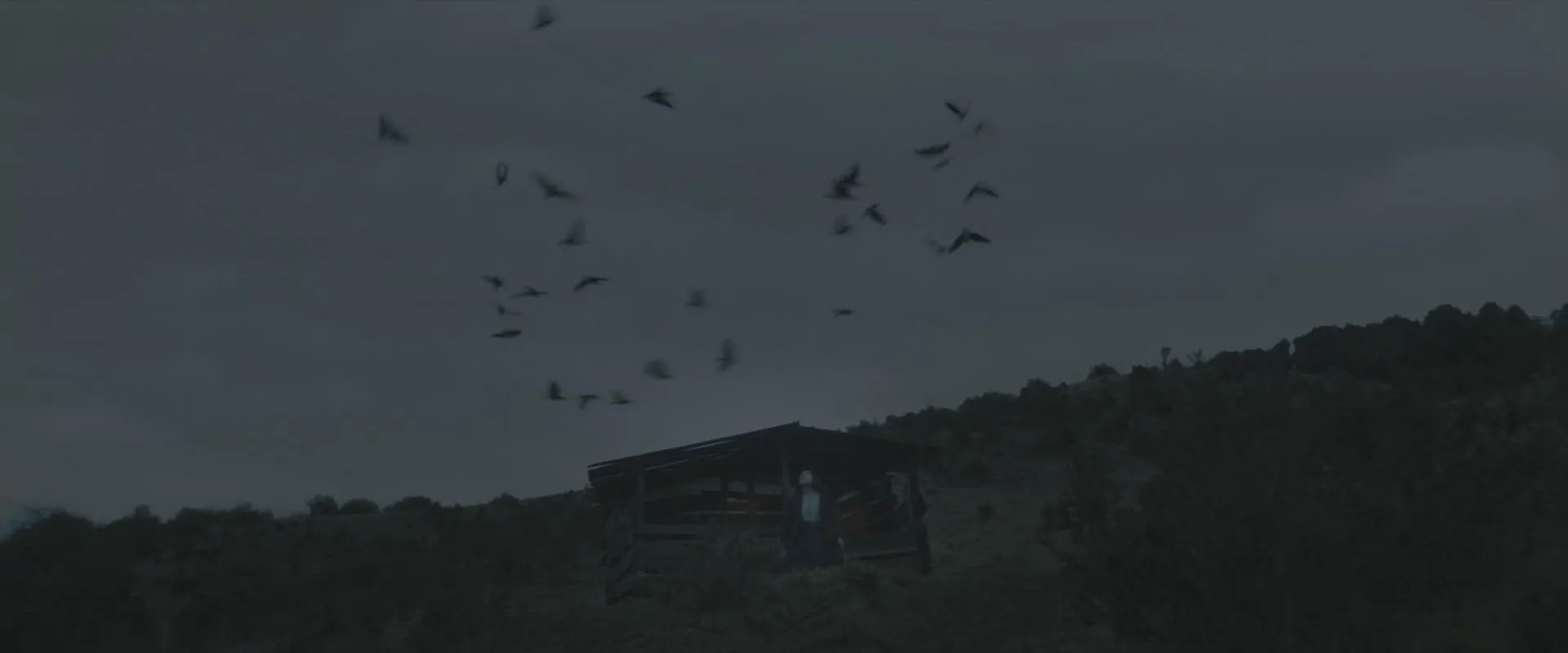
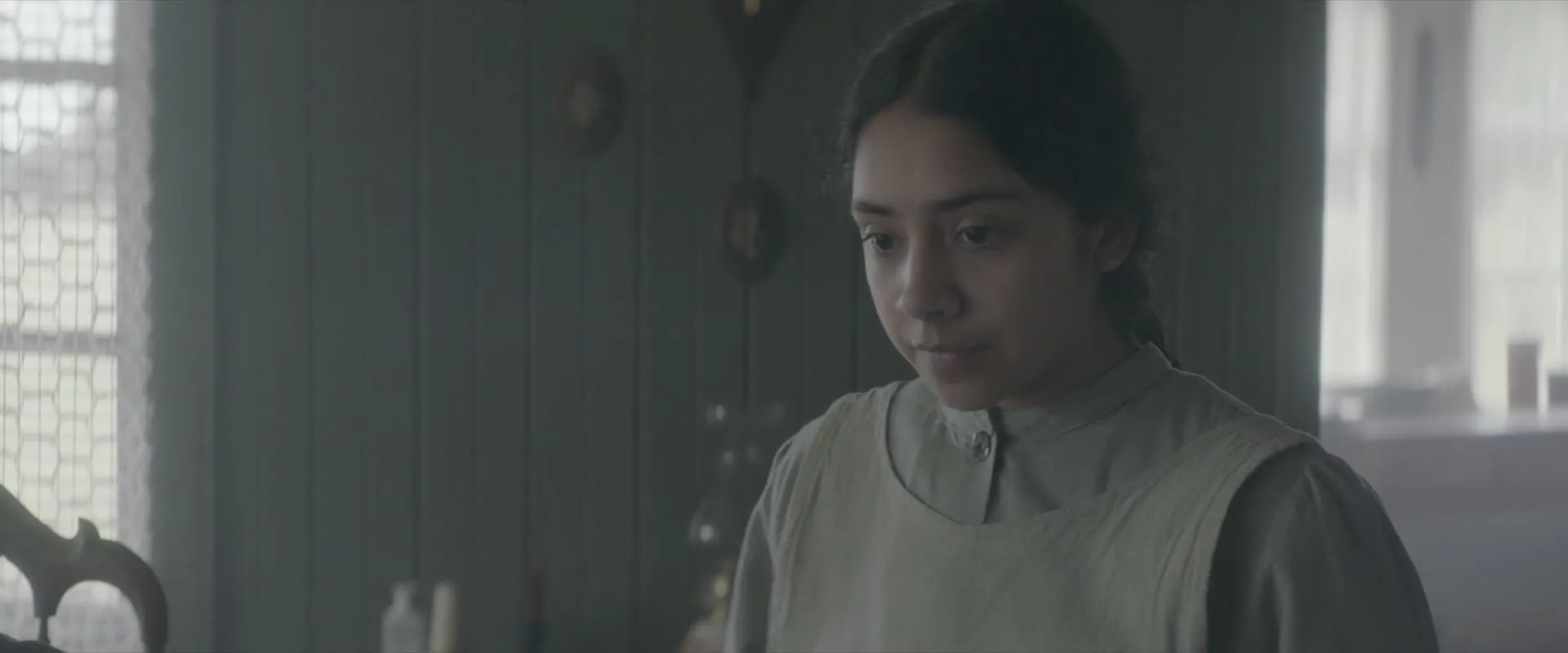
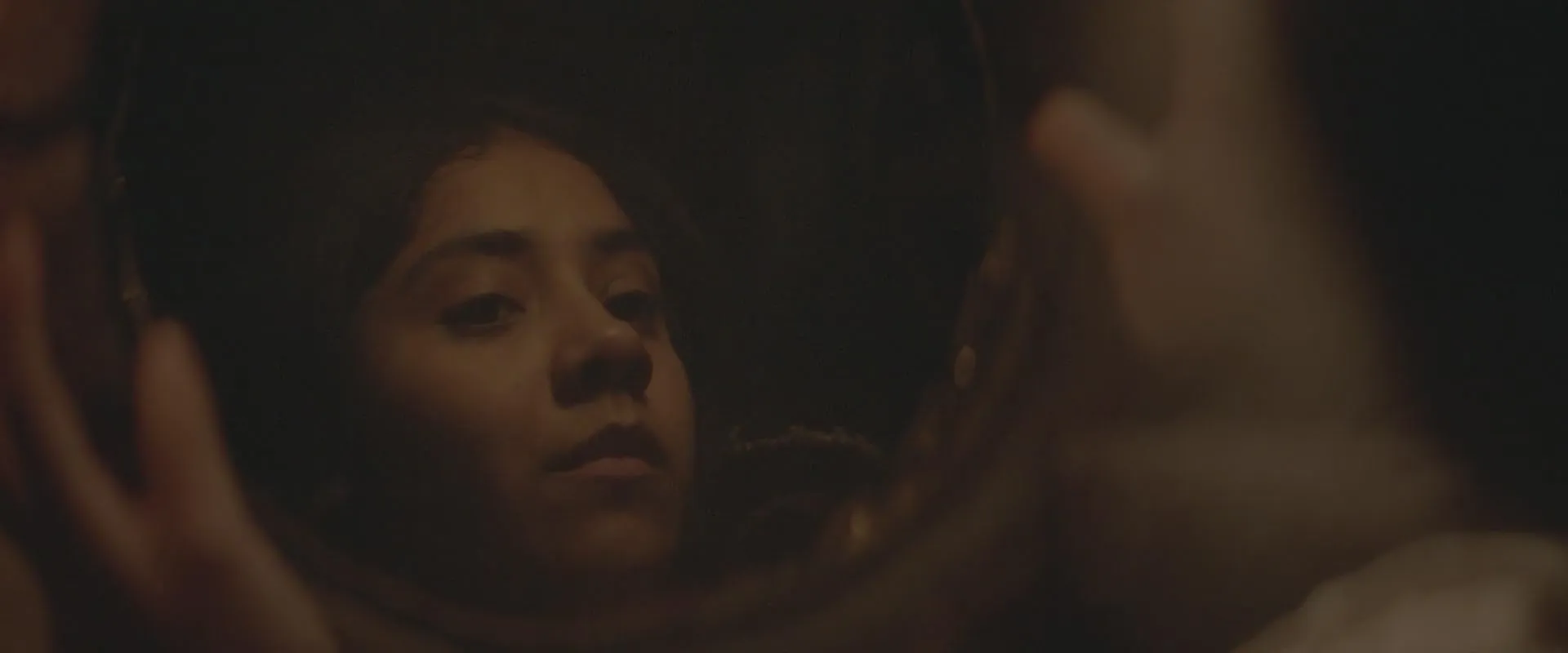
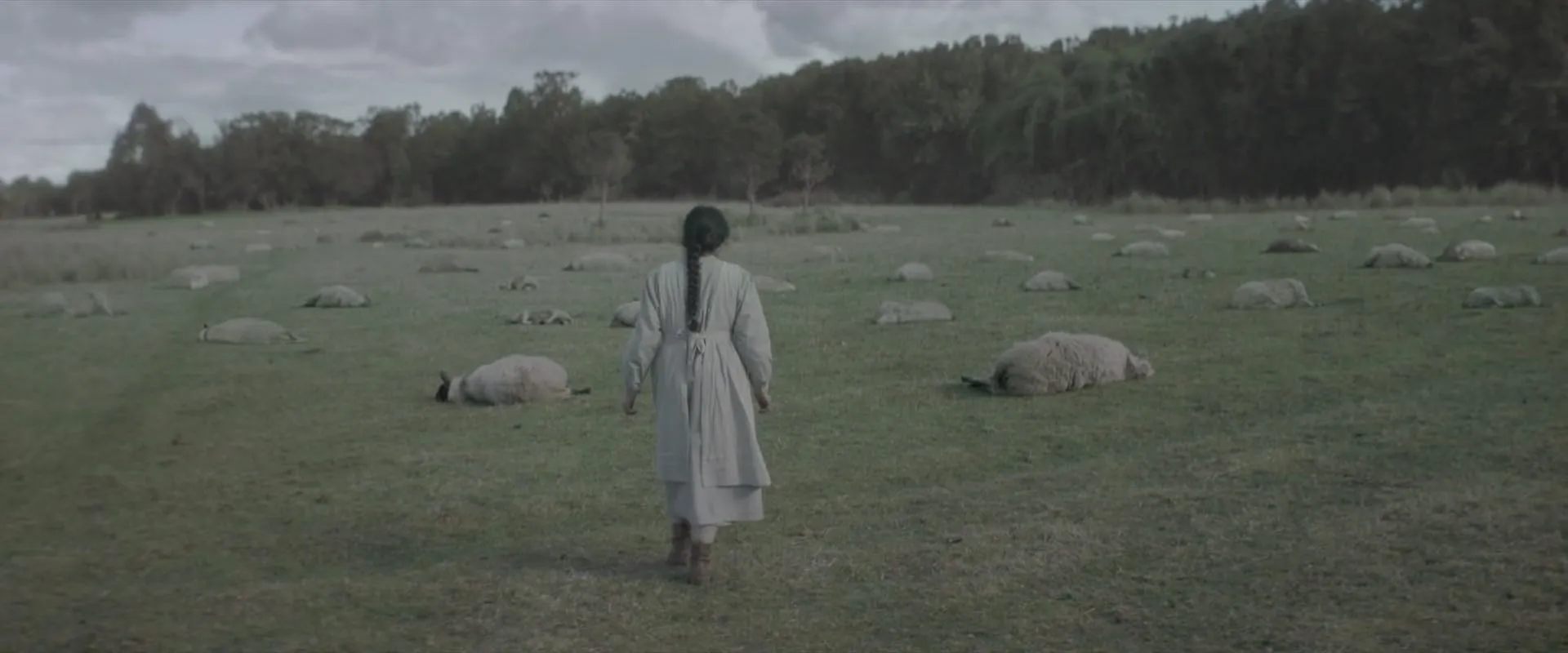
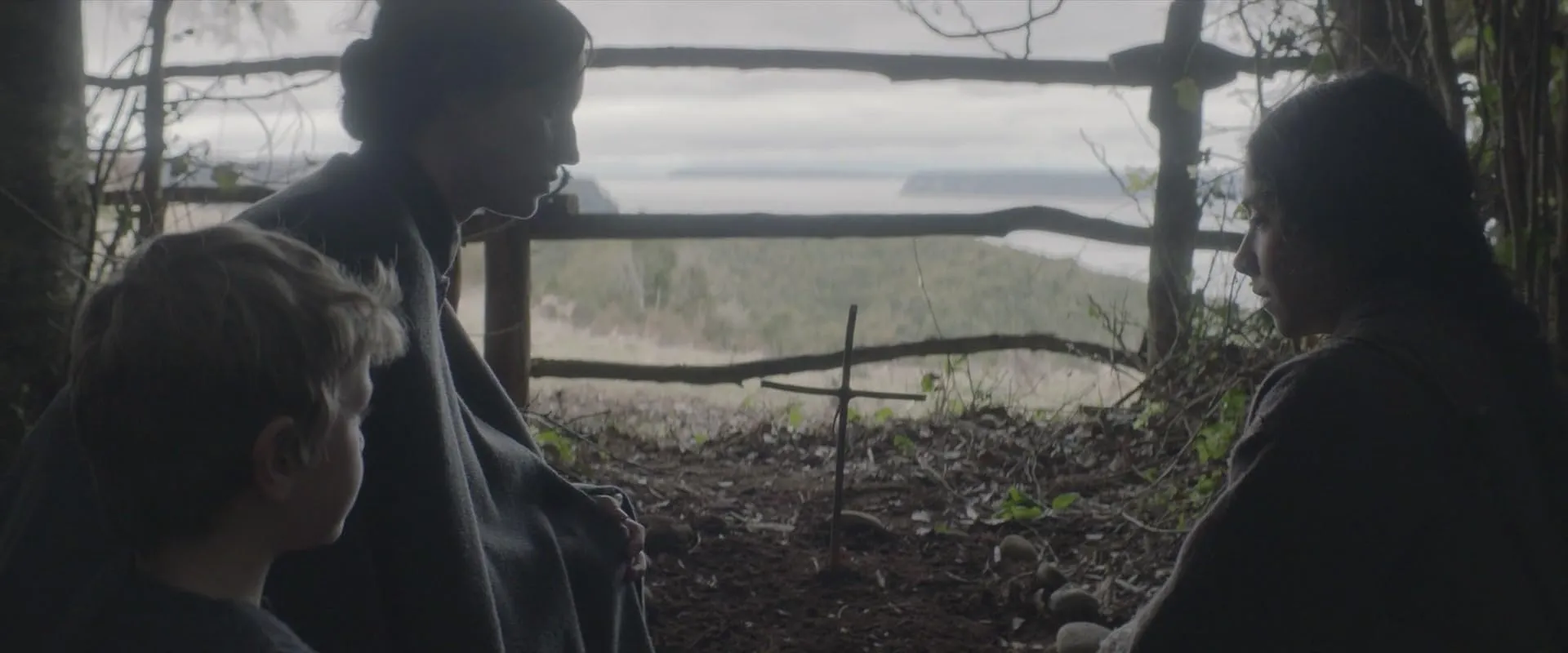








Discussion about this post